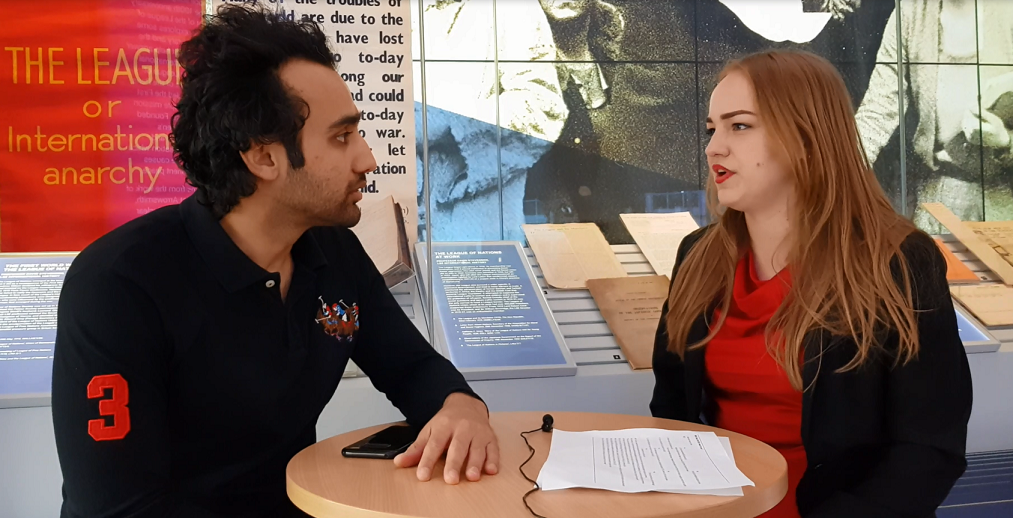From student to professor, blogging is vital social infrastructure for the higher education community, argue Michael Taster and Rosemary Deller.
LSE has one of the most wide-ranging and professionalised academic blogging platforms in the UK, if not the world, and receives over 10 million views a year. As editors of LSE Impact Blog and, until recently, LSE Review of Books respectively, it is safe to say we have spent more time than most thinking about, editing and promoting different kinds of academic blog content. Being invited to judge the LSE Higher Education Blog’s Essays in Education Blog Challenge was a welcome opportunity to take ourselves out of the day-to-day of blog editing to consider what blogging offers the higher education community broadly, and students more specifically.
Rise of the multi-author blog
We should begin by emphasising how far blogging, academic or otherwise, has evolved since its inception at the turn of the millennium. For many, blogging – a merger of ‘web’ and ‘log’ – still denotes a solitary activity, a slightly anachronistic exercise in a diaristic style of writing which, barring a few high-profile examples, holds little value in engaging wider audiences.
This view of blogs as the ‘‘primordial soup’’ of today’s digital platforms is at odds with the contemporary workings of the medium, which is defined by multi-author blogs. Look to any newspaper, thinktank or research institute and they are likely to host, or at least contribute to, various blogging platforms. Within academia, there has also been a recent proliferation of online magazines and publications aimed at reaching and engaging focused audiences – in effect, blogs by another name. There is growing evidence of policymakers using blog content, and the LSE blogs platform is regularly cited in major news outlets, linking them to potentially huge audiences. For instance, a recent LSE Impact Blog post on ChatGPT was featured in the Atlantic and has been influential in shaping the debate around artificial intelligence and assessment in higher education.
Social infrastructure of scholarship
In practice, blogs operate as part of what Mark Carrigan has termed the social infrastructure of scholarship. Blogs link groups and audiences and enable them to collectively build online communities, discussions and interactions – something Claire Gordon recently elaborated on in the case of the LSE HE Blog and the role it plays in maintaining a critical and reflexive community focused on teaching in higher education. Indeed, as the social media landscape tilts towards favouring fee-paying members or influencers, multi-author blogs can perform an important equity function, providing open access platforms for different, often marginalised, voices that might on their own not receive a hearing.
This combination of knowledge exchange and community-building – as exemplified by the LSE blog platform – is only augmented when student voices are thrown into the mix. Just as the effectiveness of knowledge exchange is typically predicated on building it into research projects from the beginning, blogging as a student can be one way of strengthening knowledge exchange skills from the very start of budding research careers, too.
Engaging with the intellectual currents
Of course, it is important to acknowledge that students may not be in a position to draw on new research findings from multi-year research projects or published research – typically the basis for academic blogs, including many within the LSE blogging community – and publishing early in the research process may come with some drawbacks. However, student blogs still offer an important mechanism for students to test out ideas, engage with the intellectual currents of their discipline(s) and stake out research questions and territory to develop further. This can be especially helpful for those looking to develop an academic career.
The practice of blogging can also help students to experiment with their personal voice and develop styles of writing that engage wider
Hearing from tomorrow’s thought leaders
Chris Gilson, Managing Editor of USAPP, LSE, writes: when we think about how we in HE speak to those outside of our institutions, it’s mostly about encouraging academics to write for wider audiences via blogs and social media. But what about our students? Students are part of our academic community while they study, often producing their own original research as PhD and master’s students or assisting faculty with their research as undergraduates.
At the Phelan United Centre, our blog, USAPP – US Politics and Policy, is a venue not only for early career and more senior academics, but also students. We ask LSE PhD students to write for our blog to talk about their research. For master’s students we have recently re-launched our Essay Competition which gives them a chance to have their work judged by academics and published on our blog.
We provide information and training sessions to help those interested in writing in an accessible way, distinct from academic essay writing. The process of engaging with a wider audience via blog writing is often just as important as the content itself as learning how to write in this way is a useful skill for students, whether they pursue a career in academia or elsewhere. It also allows them to connect with an international audience, outside the closed systems of writing for assessments. The benefits can often be two-way between student bloggers and their readers of what has been called the Republic of Blogs, who are used to reading the thoughts of senior academics. Hearing the often very different and diverse viewpoints of students, who may be the thought leaders of tomorrow, can inform and even renew the perspectives of researchers and academics – and beyond.
audiences. As Pat Thomson has argued, blogging can build confidence and encourages clarity and conciseness – a welcome skill in the often verbose world of academia! Blogging can also be used as a pedagogical tool, offering more creative and diverse forms of assessment than the traditional essay or exam paper, as evidenced by the Reviews in Translation collaboration between LSE Review of Books and LSE Language Centre.
Thinking differently about HE
The blogs that we read and judged as part of the Essays in Education challenge demonstrate that, as participants in higher education, students are highly expert in its workings – from understanding the importance of equality, diversity and inclusion (EDI) initiatives and the need to take neurodiversity seriously in the academy , to interrogating the hierarchies of knowledge production and their impact on marking practice, advocating for international solidarity among student bodies and reflecting on the value of a university degree. These student contributions all show critical attentiveness to prevalent and pressing issues facing contemporary higher education structures and offer ways to tackle them.
Our experience judging the LSE HE Blog Essays in Education competition shows that the conversational scholarship of blogging, as Melissa Gregg puts it, is enriched by the inclusion of student voices that can contribute to accessible and creative modes of thinking and writing higher education differently.
_______________________________________________________________________________________________________________________
This post is opinion-based and does not reflect the views of the London School of Economics and Political Science or any of its constituent departments and divisions.
_________________________________________________________________________________________________________________________
Top image credit: photo by Lucas Santos on Unsplash





